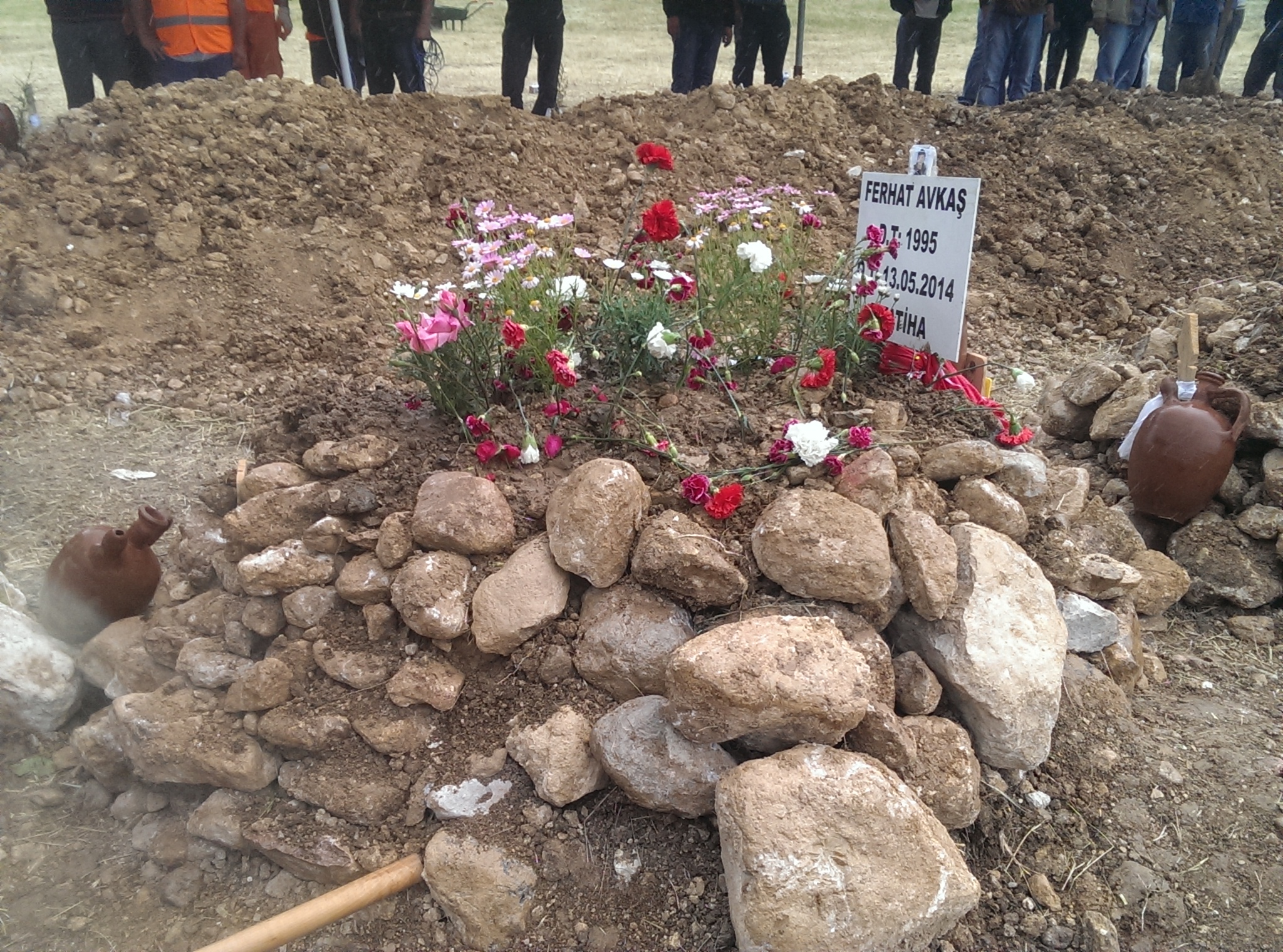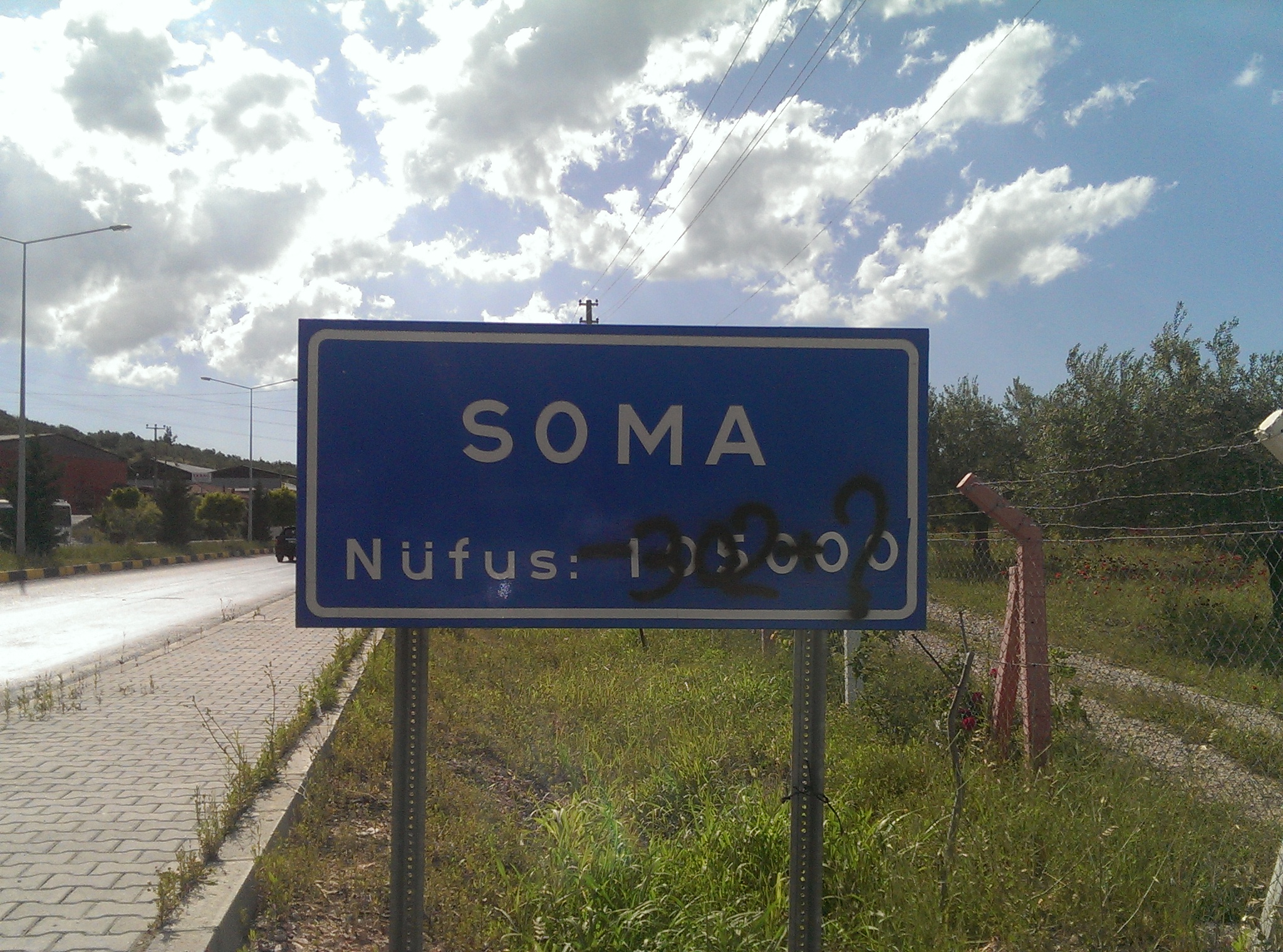
Rows of graves for those killed in Soma. Miners would get thirsty a lot. A jug is left at every grave, in their memory. Photo by Cansın Leylim Ilgaz. Used with permission.
This article was written by Mahir Ilgaz for 350.org [1], an organization building a global climate movement, and is republished on Global Voices as part of a content sharing agreement.
Coal, whether suddenly or slowly, almost always brings death.
The explosion, and subsequent fire at a coal mine in the town of Soma, in Western Turkey on May 14 was a particularly tragic and rage inducing reminder that climate disasters in fact represent a profound lack of social justice.
For Turkey a coal disaster was imminent considering the relentless increase in coal exploitation alongside abhorrently lax labor safety laws.
Just two weeks before the accident, Turkey's opposition party brought the terrible working conditions in Soma before the parliament – the proposal was ignored by the government. But there was still shock at the scale of this man-made disaster.
A sense of grief and horror multiplied as the number of dead miners continued to rise. The final toll reached 301. What served to transform grief into anger was the total lack of respect displayed by the government in the face of the disaster.
Prime Minister Erdoğan went so far as to say the death of miners is “ordinary.” With that Erdoğan confirmed his readiness to accept and enforce the perpetuation of this inherently dangerous business.
While coal mining is much more dangerous in places like Turkey where labor rights and workers’ health are trivialized, underground coal mining is an extremely perilous business even in the best of conditions. For most miners, their vocation is not a choice.
A young miner M. M. — lost 301 comrades and yet feared giving a radio interview in case his voice would be recognized and he would lose his job: “I have to return to the mine… I have to pay off debts at the bank.” The debts he is referring to are connected to bare necessities: food, housing, clothing.
In Turkey, following a recent round of legislative changes, a mining license holder can apply to the Ministry for Energy and Natural Resources to open agricultural areas or even national and natural parks for mining.
Once mining starts, residents in the area are left with one viable vocation. Coal extracted from these mines is then burnt in nearby power plants or distributed to the poor as a form of social subsidy (for continued electoral support). A seemingly endless vicious cycle.

Photo by Cansın Leylim Ilgaz. “SOMA Population 105000”, “-302?” in graffiti in remembrance of those lost in the coal mine.
The simple truth is that Turkey could have been on its way to quit coal long ago. According to Eurostat data [2], Turkey’s energy intensity ratio has not improved for at least 10 years (improving this ratio could result in energy savings in the range of 20-25% – around the current share of coal in electricity production).
The role of climate friendly sources of energy (excluding controversial hydro projects) is so low it can barely be seen in a pie chart [3]. In a country with an abundant supply of renewable sources of energy no less. This transition would provide enough jobs for all those currently working in mining and beyond.
Thus, the flippant remarks by those in power following the death of miners’ is appalling on more than one level. If not using the means to eliminate dependency on coal despite knowing that coal kills represents criminal neglect, then increasing coal use even more despite this knowledge is simply criminal.
Case in point, the Ministry for Energy and Natural Resources declared 2012 as the “year of coal” and the current policy is to increase the share of coal in electricity production to over 30% by 2030.
Risking the lives of many for the profit of the few would be one of the most common examples of social injustice.
We have to accept that our addiction to fossil fuels is interlaced with a plethora of social justice issues. The indignation at these injustices should be a major part of the framework for the struggle to solve the climate crisis.